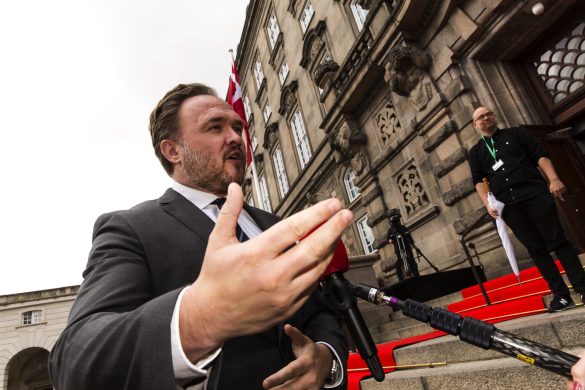Modermælk er det bedste for alle børn, især når de er helt spæde, og det er ved at gå op for et stigende antal mødre i det asiatiske ø-rige, hvor brugen af kunstig modermælkserstatning er i tilbagegang.
MANILA, 13 August 2012 (IRIN): The Philippine government’s state-run breast milk bank is intensifying collection efforts to boost breastfeeding among the poor and help women return to work immediately after giving birth if they want to do so.
Hundreds of women come to have their babies at the Jose Fabella Memorial Hospital, the busiest maternity institution in Manila, the capital, where more than 12 million people live.
Many women are barely able to afford even the minimal payment, and to help cover their costs some of them donate breast milk to the hospital’s milk bank, which is used to feed babies whose mothers have lactation problems.
Esmeraldo Ilem, head of the hospital’s family planning unit, said the milk is also sold at up to 10 US dollar (60 DKR) for four litres to other hospitals and individuals, with mothers as a first priority.
“Even hospitals in far-flung areas or provinces come here to buy milk from us. For instance, when a mother dies in a hospital where there is no milk bank, the family comes here to source the milk”, Ilem told IRIN.
Nurses ask for donations to the hospital’s breast milk bank, where it is pasteurized and refrigerated. Ilem said milk from the Jose Fabella Memorial Hospital also helps working mothers give their babies breast milk after returning to work.
More new milk banks
The hospital started its bank in 2007, but since then at least two other facilities in the capital have opened milk banks.
A recent study by the government’s Food and Nutrition Research Institute showed that exclusive breastfeeding – giving babies only breast milk for the first six months of life, which boosts their immunity to childhood diseases – has risen from 36 percent in 2008 to 47 percent in 2011 in the Philippines.
Breastfeeding a baby within one hour of being born, which has also been proven to reduce infant deaths, increased from 32 percent in 2008 to 52 percent in 2011.
However, there are “disparities in exclusive breastfeeding rates” in different parts of the country and further effort is needed to increase breastfeeding so as to reduce infant mortality.
“Human milk or breast milk is the best way to make babies healthy in the early stages of life,” said Ilem, addng:
“Sadly… there are many mothers who need to go back to work or do not lactate very well, so this is where our milk comes in.”
Milk codes
Læs videre på
http://www.irinnews.org/Report/96089/PHILIPPINES-Banking-breast-milk-to-save-lives














